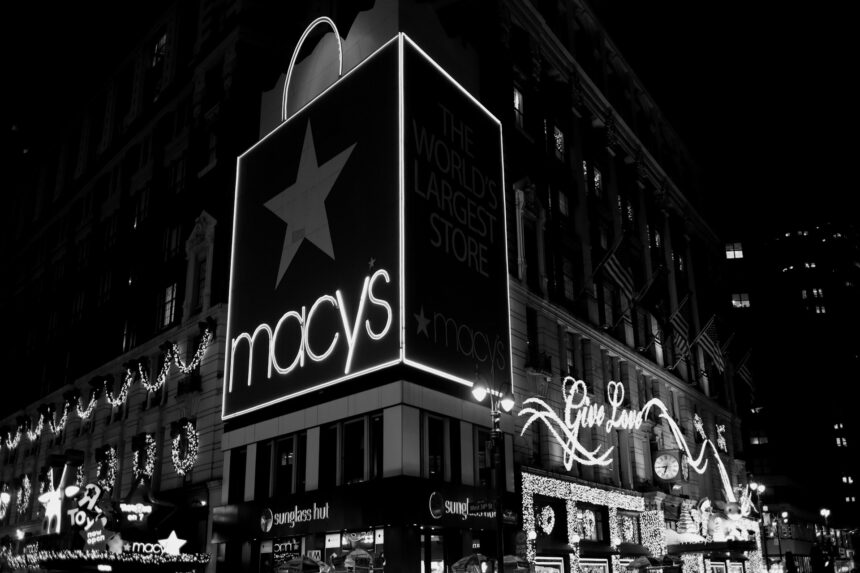In 2018, Harvard Business Review included an article on its website titled, “ When It’s Smart to Copy Your Competitor’s Brand Promise”. The authors were assistant professors of marketing at prestigious business schools. The thesis of the study was that it is just fine to copy your competitor’s brand. The authors did not seem to know the basics of brand building. They applauded the copying of features and benefits to build successful brands. What they wrote about was actually commodity selling. This is what some generic brands used to do using strategies such as “Me too but cheaper.” Really powerful – enduringly profitable – brands need to be authoritative, and offer relevantly differentiated experiences.
When your brand is undifferentiated in an irrelevant way, you attract commodity consideration customers. These customers see all brands as basically the same. There is no brand preference. These customers are brand indifferent. For these customers, the relevant differentiator is price and convenience, just like your gas station. Buc-ee’s and WaWa are shifting the price/convenience gas station by creating experiences that just happen to sell fuel. Brands need preference in order to gain loyalty. And, brands need loyalty to generate enduring profitable growth.
This article is part of Branding Strategy Insider’s newsletter. You can sign up here to get thought pieces like this sent to your inbox.
A brand is a promise of a relevant, differentiated experience. If your brand is not relevantly differentiated, you are headed for Commodity Corner rather than Power Place. This means a brand must be perceived as relevantly differentiated. To be powerful, a brand must also focus on authority, that is quality, leadership and trustworthiness, where leadership means leading in size and in mind. In the 1980s, IBM was the leader in computing. But, Apple was the leader in innovation and popularity. In other words, to be a leader, the brand must act like a leader.
Bloomberg has a Commodity Index. The Bloomberg Commodity Index tracks materials funds such as copper, corn and oil. These funds do not reflect a “brand” of corn, oil or copper. The profits come from price per pound not relevant differentiation of benefits and rewards.
Of course, brands must deliver the category-defining features and benefits. A food brand must taste good. An automotive brand must safely start, stop and drive from point A to point B. A watch must offer the correct time of day. A hotel brand must have clean rooms. Bottled water must be particle-free and pure. A mobile phone must have still photo and video capabilities, manage email and texts, sync with calendars and computers and, yes, make and receive calls.
But, category-defining features and benefits are the greens fees, the table stakes, the necessary elements that allow your brand to compete. Now, what is it that relevantly differentiates your brand with authority?
This lack of focus on relevant differentiation and brand authority seems to have Macy’s, one of America’s most storied brands, in its grip. And, it does appear that Wall Street is accepting Macy’s current strategy.
The Wall Street Journal reported on efforts by Macy’s CEO to “fix’ the shoe department. Apparently, Macy’s shoe department is not a great experience. The new CEO aims to make shoe shopping at Macy’s easier and faster. A lot of organizational resources are involved. The thinking is that by making shoe shopping a more positive experience, Macy’s will be better able to reverse its sales declines. Reporting states that analysts think a focus on shoes is a good start. But, it appears that analysts believe more has to happen.
Macy’s has been in decline for some time. There have been a lot of tactical actions to right the ship. What has not happened is focusing on what makes Macy’s special and authoritative. What has not happened is knowing Macy’s strength and focusing, aligning and mobilizing behind this strength.
Sure, shoe shopping should be easy. But, why Macy’s? Is Macy’s heritage “shoes?” Why not shoes at Bloomingdale’s? Or, Saks Fifth Avenue? Or, why not Nordstrom which has a heritage in shoes? How is Macy’s different from Nordstrom? What makes Macy’s more of an authority on shoes than Nordstrom? And, is Macy’s heritage easier and faster shoe shopping?
The Wall Street Journal indicated that Macy’s will be offering fewer shoes and offering more upscale, expensive shoes. Macy’s CEO believes that small things make a difference. He is correct. But, when a brand is in trouble, figuring out which small things reflect the brand’s promise and generate customer-perceived brand value is critical.
Think about a 4-box matrix. The X axis is authority. The Y axis is specialness. One of the worst places to be in low on authority and low on specialness. This puts your brand in Nowhere Land. But, it is also problematic to be low on specialness and high on authority. This is Commodity Corner. This is where customers say, “Yeah, GM makes trucks and SUVs.” GM has some authority in automotive. This is where customers say, “ OK, Dasani is pure water.” But, what makes GM or Dasani special in customers eyes? What is the specialness – not generic, category-defining elements – that drives customer-perceived value? Macy’s is a department store. What makes Macy’s a special, authoritative place to shop?
According to an analyst interviewed in Barron’s, the financial newspaper, department stores are in a worrisome place similar to our pre-pandemic retail environment. The concern is that department stores are again becoming “market share donors” to specialty stores, off-price stores such as Ross and online options such as Amazon. Department stores have not figured out what makes them special and authoritative. In a world of declining trust, having authority for something special is a winning strategy.
Brands that are low on authority and high on specialness are niche brands, residing in the box Niche Nook. In the early 1990’s, this is where you found Dyson.
The best place to be is in Power Place, high on authority and high on specialness. This requires focusing on multiple critical success factors: relevant differentiation, continuous improvement, quality, leadership, trust, employee pride and customer pride. Dyson moved into Power Place by solving an important and frequently occurring problem: customers’ loathing of vacuum cleaner bags. Dyson’s powerful, sleek-looking, bagless vacuums turned Dyson into an authority on vacuuming.
Accelerate Your Job Search With Marketing’s Most Advanced AI Career Coach
Macy’s has some authority when it comes to shopping. But, its specialness is lost. This means that what authority Macy’s does have is eroding. What is the viable core of the enterprise that must be defined and protected? What are the enduring brand truths?
Yes, in a turnaround situation it is important to pursue activities with quick behavioral impact that will change customer behaviors and then lead to altered attitudes about the brand. Are shoes the answer? If Macy’s were to make immediate changes in line with Macy’s brand promise, would shoe shopping be the starting point? Is shoe shopping going to be the catalyst for moving Macy’s back to Power Place?
One might argue that Starbucks is focusing on small specifics to change brand behaviors and attitudes. But, the changes that are being made at Starbucks are in sync with the revitalization of Starbucks’ core essence. Writing your name on the cup and bringing back the condiment bar reinforce socialization and personalization, in ways that make the Starbucks experience of third place viable again.
To be powerful, brands such as Macy’s must move from Commodity Corner – high on authority but low on specialness – to a position in Power Place – high on authority and specialness. This means 1) having a laser-like brand focus on the brand’s strengths, its relevant differentiated total experience; 2) having an exquisite understanding of the core customer; 3) having a viable market segmentation; 4) communicating internally and externally; and 5) closing the gap between the current and the desired customer perception of the brand.
Macy’s became one of America’s best places to shop by having a very clear promise. Before making shoe shopping at Macy’s just like shoe shopping at Nordstrom, Macy’s must define just what it is that it wants to be in the customer’s mind. Otherwise, Macy’s will remain in Commodity Corner.
Contributed to Branding Strategy Insider by: Joan Kiddon, Partner, The Blake Project, Author of The Paradox Planet: Creating Brand Experiences For The Age Of I
At The Blake Project, we help clients worldwide, in all stages of development, define and articulate what makes them competitive and valuable. Please email us to learn how we can help you compete differently.
Branding Strategy Insider is a service of The Blake Project: A strategic brand consultancy specializing in Brand Research, Brand Strategy, Brand Growth and Brand Education
Post Views: 2










